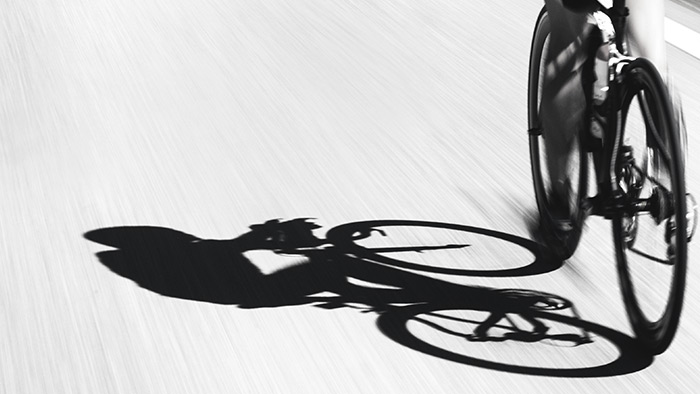When it comes to planning your season for a key race in the latter part of the year, one of the key points is longevity. If you can make it to the event without over training or injury due to lack of strength you’re a select few.
The theme for my training throughout the year in general is “strength.” Hill reps on the bike and run, big gear work (low cadence) on the bike, and heavy lifting in the gym. Having access to hilly, rocky terrain is also a great way to develop run strength.

1. Focus on Building Strength in the Pool
I’ll occasionally swim with a band around tied my ankles in the pool after warm up to help increase upper body strength, but not more than a 400 or so. Some coaches and athletes are advocates of swimming extensively with a band, but I prefer to kick a little when I swim.
If anything, I much prefer a Swim Cordz belt with 20 feet of tubing tied to the end of the pool. Once I can’t swim any further, I stop, let the cord pull me back to the wall and repeat. Having access to a Power Tower or Vasa Swim Trainer can be helpful for working on specific swim strength, too.
2. Don’t Shy Away From the Weight Room
One of the staples to my program is making sure I’m lifting heavy in the weight room throughout the season. My key focus is either front squats or back squats, roman deadlifts (RDLs), and deadlifts.
Some athletes prefer to only lift heavy in the early part of the training year, but I typically do this all year round and have been since 2009. In fact, anytime I’ve ended up with a preventable injury the last time I lifted heavy was at least three weeks prior to seeing symptoms, meaning most of my injuries stem from overuse and not lifting weights.
This includes shin splints, tendinitis in my feet/ankles, various hamstring/low back/glute/piriformis issues, a torn calf muscle … the list goes on. Going to the gym to do core work is completely separate and doesn’t substitute lifting heavy, at least in my experience.
3. Take Some Time to Recharge Mid-Season
Secondly, plan on taking a mid-season break. Two and a half to three and a half months before your key event is ideal. It doesn’t have to be a full week off from training, but maybe a throw in a few easy sessions just to stay loose if you’re feeling up to it. I would generally do this after an early summer race because it’s easy to switch to recovery mode without feeling like you are slacking off on your overall season goals and training.
4. Make Recovery a Part of Your Training Routine
Make sure to roll out your legs on a foam roller a few times a week and use either a golf ball or spikey ball on your feet. Getting a massage a few times a month and up to twice a week when training hard is a huge help.
A good massage therapist can also help you identify potential injuries or areas you should be focusing on in the weight room. For example, if they ask if your left glute medius has been bothering you because it isn’t relaxing, that could mean you have some tightness and/or weakness in that area that should be focused on to prevent pain or injury down the line.
5. Take Days Off
Get into a habit of taking a day off once a week, or if you aren’t into taking days off some kind of active recovery like a super easy 60-minute bike ride, 5K easy run, or even a “swim only day.”
If I’m in the middle of a training block and haven’t had a down week in a while, I know to either find a race that fits my schedule so I can have a mini-taper, race, followed by a few easy days. Or I just go ahead and dial it back on the volume and intensity for a week so I don’t run myself into the ground.
6. Include High-Intensity Training Year Round
Lastly, as long course athlete, I’ll continue to include high intensity training (VO2 Max efforts) throughout the season. More so in the first half of the year than during a 12-week IRONMAN block, but I find it to be important. Once under a heavy training load, the trick is not to over do it. A little goes a long way in this regard.
Say what you want about Floyd Landis, but he’s right when he said, “There’s no such thing as over training; you were undertrained to begin with.”




